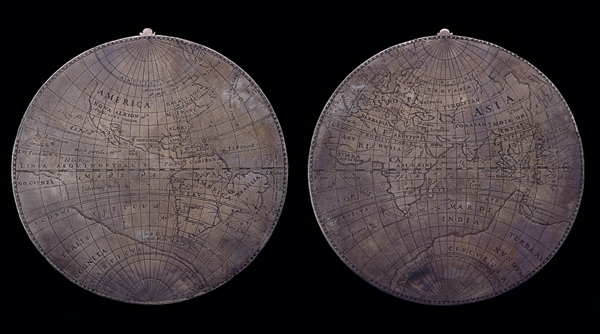You might be thinking ‘Oh no’ as you listen to yet another trailer announcing the BBC’s latest Shakespeare season, designed to showcase England’s great playwright across radio and TV in this Olympics year. ‘Do we really need a 20-part series on Radio 4, scratching through the surprisingly few facts that are known for sure about the Bard, or even trying to evoke that faraway world in which men dressed in slashed-velvet bloomers and heretics were hung, drawn and quartered?’ Actually, we do, and especially when it’s written and presented by Neil MacGregor, director of the British Museum.
Shakespeare’s Restless World, which starts on Monday, doesn’t try to make the playwright more accessible by bringing him up-to-date. On the contrary, the series (produced by Paul Kobrak) is driven by the desire to find out ‘what Shakespeare means here and then’. How were the plays seen in the 1590s? How much is really different now?
Snatches from the plays are interwoven with hard facts about the lives lived by those who would have been in the audience. MacGregor takes 20 objects from museum collections across the UK and dissects their stories to explore what it was like to be a groundling in the Globe, watching as Tybalt lacerates Mercutio or the witches brew up trouble in their bubbling cauldron. Romeo and Juliet, under MacGregor’s tutelage, becomes less a love story than a 16th-century version of A Clockwork Orange. Gang warfare drives the plot. London, here and then, is plagued by knife crime.
Once again, as he did so effectively in A History of the World in 100 Objects, MacGregor lets the objects speak, tell their stories, not imposing upon them grand theories or anachronistic analogies, and never pinning on them more than the object can bear. An Elizabethan rapier discovered on the foreshore of the Thames inspires him to learn how to fight with rapier and dagger. A fork dug up from the site of the Rose Theatre on the South Bank leads to digressions on Glyndebourne hampers and the perhaps surprising fact that Shakespeare was rich because he owned the catering franchise at the Globe.
MacGregor asks the question, as if to someone who was there at the first performance, ‘What was in your head as you stood in that theatre having paid your penny?’ The man who is next to you might have been a spy, or a Catholic traitor. As you walked across from the north bank of the river to the theatre on the other side you would have seen the bloodied heads of traitors studding the entrance to London Bridge. The fear and loathing on stage was a reflection of everyday life.
He studies a small round silver medallion from 1589, delicately inscribed on both sides with a map of the world showing Francis Drake’s route around the globe. When Puck says, ‘I’ll put a girdle round about the earth in 40 minutes,’ the audience would immediately have recognised the allusion to Drake’s voyage, bringing the world into England’s compass.
MacGregor makes it all seem very real, very alive, not just in 1592 but also 2012. ‘How do you know that?’ he demands, when talking to Alison de Burgh about the weapons used by the Capulets and Montagues. She’d just been saying that Romeo and his family used English weapons, and fought according to English rules. How did she know that? MacGregor has the knack of asking the questions even before we’ve had time to think them, opening up vistas that we didn’t even know were there.
Questions lie at the heart of Michael Sandel’s new series for Radio 4, The Public Philosopher. I confess this sounded so dull to me that I was going to avoid it. How could Sandel, professor at Harvard and a former Reith lecturer, liven up a debate about university admissions? We’ve heard so much already from the rival political parties about the fairness, or not, of tuition fees, and from academics pleading that their institutions are fair-minded in their distribution of places. What else is there to say? But I caught the first five minutes after the end of Today last Tuesday morning and was hooked. The programme had such a refreshing change of tone from the confrontational style of the discussions elsewhere on air.
Sandel does not lecture the assembled students at the LSE or his listeners but encourages them (and us) to question their assumptions, opinions, thoughts. What are they based on? He wants us all to develop the habit of asking questions, not because we will necessarily find answers but as a way of identifying the big ideas that lie behind what we think, believe, assert. It’s a way, he says, of protecting the democratic principle.
Georgia declares ‘It’s not fair’ that students from disadvantaged backgrounds should be given priority. ‘Who decides who is poor?’ she asks. ‘What puts you in a certain class?’
‘It’s a powerful argument,’ challenges Sandel. ‘Who has a reply?’






Comments